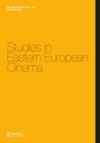The Sense of an Ending: Culture, Capital, and the Fate of (Late) Modern Europe in Roman Polanski’s The Ninth Gate (1999)
IF 0.4
0 FILM, RADIO, TELEVISION
引用次数: 0
Abstract
Abstract As the imaginary deadline or vanishing point of the turn of millennium was drawing ever closer, its associated anxieties and apocalyptic woes offered a fertile breeding ground for suspense, horror, and the fantastic to experience a resurgence in Western cinemas. Roman Polanski’s fifteenth feature film The Ninth Gate, released in 1999, can be read among the various auteur-helmed evidences of such a trend, but also as a self-conscious exercise in the kind of trans-European filmmaking being promoted at the time within the continent, one in which Polanski himself had, willingly or not, already been cutting his teeth for almost two decades after his spiteful return from the US and Hollywood in the late 1970s. On the back of a border-crossing journey in search for three demonic books, this essay will argue, The Ninth Gate manages to discursively interlace both facets. The result, by way of an intermedial concern with the world of literature, a generic involvement with the supernatural, and a meticulous mobilization of cinematic space, location shooting and architecture, is a cynical, self-deprecating reflection on the precarious state of Europe at the time, caught between the memories of glorious but long-fading splendor and a crippling uncertainty about its future and place in an increasingly globalized world.终结感:罗曼·波兰斯基《第九扇门》中的文化、资本和(晚期)现代欧洲的命运
随着千禧年的最后期限或消失点越来越近,与之相关的焦虑和世界末日的悲伤为悬念、恐怖和奇幻在西方电影院的复兴提供了肥沃的土壤。罗曼·波兰斯基(Roman Polanski)的第十五部故事片《第九扇门》(The Ninth Gate)于1999年上映,可以从各种导演主导的影片中看出这一趋势,但也可以看作是当时在欧洲大陆上推广的那种跨欧洲电影制作的自我意识练习。20世纪70年代末,波兰斯基从美国和好莱坞恶毒地回来后,不管愿意与否,他已经在这片大陆上磨合了近20年。在穿越边境寻找三本恶魔之书的过程中,本文认为,《第九扇门》成功地将这两个方面穿插在了一起。其结果是,通过对文学世界的中间关注,对超自然现象的普遍参与,以及对电影空间、外景拍摄和建筑的细致调动,对当时欧洲不稳定的状态进行了一种愤世嫉俗、自嘲的反思,陷入了对辉煌但长期消退的辉煌的记忆和对其未来和在日益全球化的世界中的地位的严重不确定性之间。
本文章由计算机程序翻译,如有差异,请以英文原文为准。
求助全文
约1分钟内获得全文
求助全文
来源期刊

Studies in Eastern European Cinema
Arts and Humanities-Visual Arts and Performing Arts
CiteScore
0.50
自引率
0.00%
发文量
34
 求助内容:
求助内容: 应助结果提醒方式:
应助结果提醒方式:


